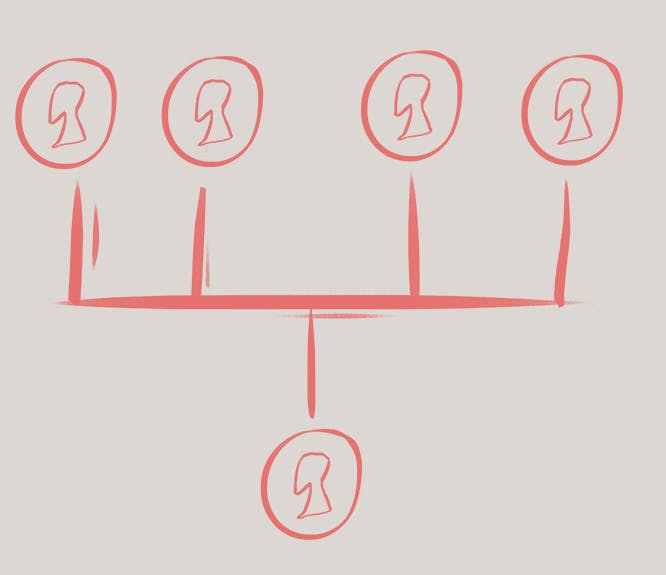Covert Coordination: The early relationship between the CIA and MI6
5-6 minute read
By The Findmypast Team | December 1, 2015
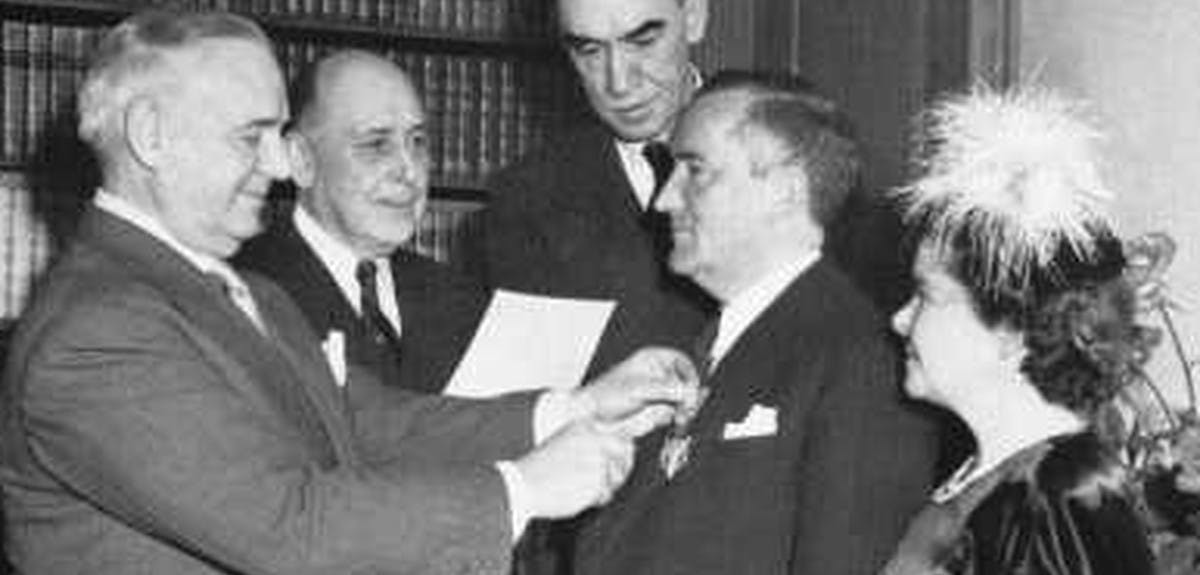
Though the United States and Great Britain are known now as the foundation of the great alliance that defeated Nazi Germany in World War II, the two were not always on the same page when it came to standing up to Hitler's aggression.
In the year 1939, when war loomed and eventually erupted, citizens of the United States were hesitant to get entangled in another European armed conflict. But Britain was still attempting to influence U.S. opinion by running covert operations in America and wheeling and dealing with American intelligence behind closed doors.
In the end, the man who founded the CIA and the real-life inspiration of James Bond would work together to bring the U.S. to Britain's aid. The story of William Donovan and William Stephenson is not one of the more well-known tales of the second World War, but it was a vital step in creating the close relationship between the U.S. and the U.K. that still exists today.
American Reluctance to Enter the War
Following World War I, there was an outburst of American isolationist sentiment. As the country stepped back and examined the causes and results of the Great War, many began to think of war as pointless and wasteful. The Great War stood as a suspicious antecedent to the Great Depression and Americans desired to avoid the financial drain and loss of human life caused by war.
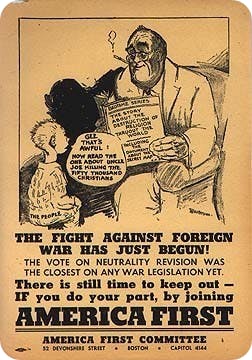
As war crept into the public discussion once again in the 1930's, the American public reacted predictably. Many, not wanting to get dragged into another European conflict, wholly rejected the idea of American involvement, even as Nazi aggression became evident.
There were many who recognized the difference between the current conflict and that of the First World War. Franklin Delano Roosevelt was one of them, reminding the public that "the Axis not merely admits but proclaims that there can be no ultimate peace between their philosophy of government and our philosophy of government." Roosevelt and many others saw Nazi aggression as an existential problem for America.
Nonetheless, the non-interventionists were well-organized and represented in key places in Congress. The Neutrality Acts of the 1930's outlawed trading with countries involved in armed conflicts, and also forbade giving loans or credit to them. It would take a covert organization and some back-channel dealings to free the American government to give aid to Britain.
British Security Co-ordination
When Britain declared war on Germany in 1939, the Neutrality Acts forced the American FBI and the British MI6 to cease their formal liaison. Though the Congress of the United States seemed to be pulling America back from the conflict, many members of the executive branch were sympathetic to the British cause.
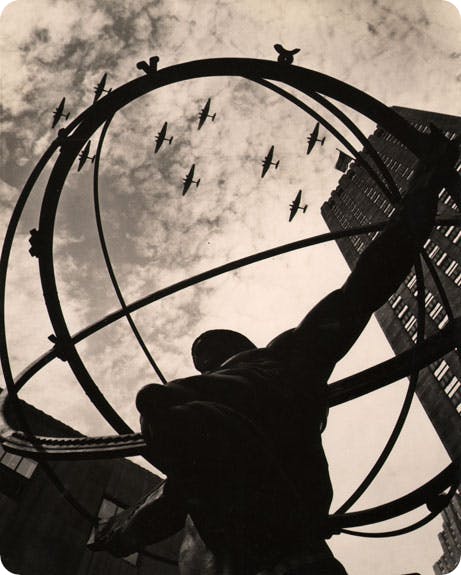
Knowing that there were surely agents of the enemy working within the United States to sway public opinion away from intervention, Winston Churchill sent Spymaster (and the real-life inspiration for James Bond) William Stephenson to set up a covert intelligence operation in New York City.
This organization, known internally as British Security Co-ordination, operated under the cover of the British Passports Control Office, and produced propaganda to sway American public opinion. At the same time, Stephenson established personal relationships with U.S. interventionists behind closed doors.
J. Edgar Hoover and FDR knew of and supported the BSC, but it was one man in particular, William J. Donovan, who was instrumental in securing American aid for the British.
Donovan and Stephenson
William J. Donovan, a lawyer from New York, was actually a political opponent of FDR, but had traveled extensively in Europe during the interwar years, and possessed a realism in line with FDR – he firmly believed that another large conflict was inevitable, and that the U.S. would be forced to play an active role.
Donovan became a trusted adviser to FDR, and had a close relationship with William Stephenson, whom he had known in the First World War. Stephenson, desperate to secure war materiel for Britain, relied solely on Donovan to arrange meetings with multiple U.S. military secretaries, and the United States eventually agreed to covertly supply material assistance to Britain.
While Stephenson was busy trying to change public opinion in America, FDR sent Donovan on a discrete fact-finding mission to Great Britain. U.S. Ambassador to Britain at the time, Joseph P. Kennedy, an isolationist, held a grim outlook for the conflict, and warned FDR "against holding the bag in a war in which the Allies expect to be beaten." In July of 1940, Neville Chamberlain wrote in his personal diary that he "saw Joe Kennedy today
Donovan's opinion was not clouded by Kennedy's pessimism, however, and the British, including Winston Churchill, shared every detail of their war plan with him, in hopes of convincing the American that they had a shot.
"Donovan returned to the United States wildly enthusiastic about the British – his first recommendation was that Joseph Kennedy should be immediately fired as ambassador.
"
Beyond that, he vehemently believed that the British would fight until the bitter end, and that they could withstand the Nazi's as long as they received help from America.
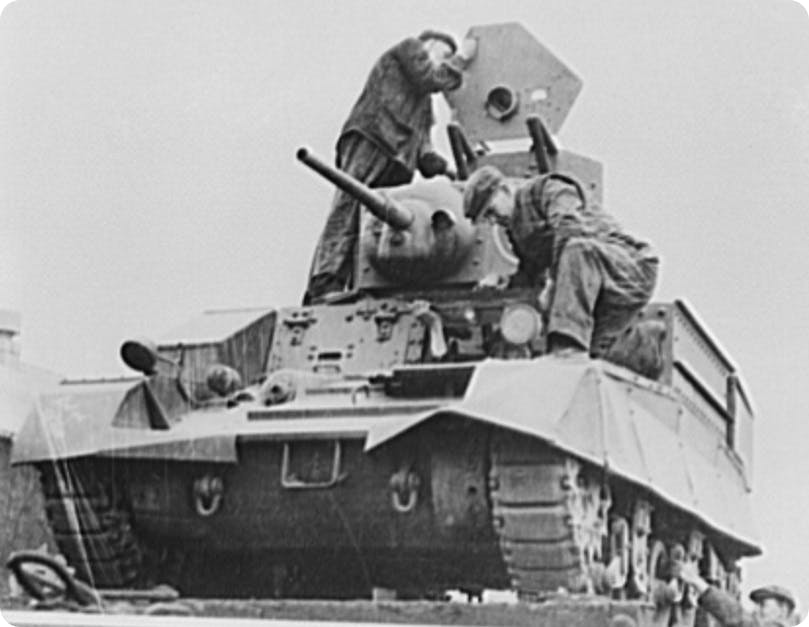
Office of War Information. U.S. Library of Congress Digital Archives
Lend-Lease and Intelligence Cooperation
Donovan's enthusiasm convinced many in the American government that the non-interventionists must absolutely be overcome. Public opinion began to sway as well.
"The BSC successfully maximized pro-British coverage in the American press, and pictures of the 1940 bombing of British cities resonated with Americans everywhere.
"
FDR was able to successfully relax the Neutrality Acts, first establishing a "cash and carry" policy, allowing Britain to purchase materiel if paid for fully in cash. This policy paved the way for the Lend-Lease act, established in 1941, which fully allowed the United States to supply the Allies with war materiel.
From his many meetings in Britain and close relationship with William Stephenson, William Donovan gained some much needed insight into how a country should be running their intelligence operations. His trip to Britain convinced him that the United States needed a centralized organization to collect and analyze all foreign intelligence.
With the help of the British and the blessing of FDR, Donovan would go on to form the Office of Strategic Services during the war, which would eventually become the CIA. All throughout the war, "Wild" Bill Donovan, as he came to be called, would run some of the first ever foreign covert actions on behalf of the United States.
"Though closely advised by his British comrades, Bill Donovan lead the OSS with a distinctly American version of spy-craft
"
Ignoring the subtleties of intelligence collection that the British had perfected, the OSS was focused more on spectacular (and rarely successful) covert actions to sabotage and disrupt the enemy.
Despite their different operating styles, the American and British intelligence services became closer and more coordinated than perhaps any other two foreign countries – a relationship that lasted throughout the Second World War, up to and including the present day.
The time leading up to the Second World War was a fascinating one, in both America and Great Britain. If they were in America, were they interventionists or non-interventionists? If your ancestors were in Britain at the time, they were likely preparing for invasion while holding out hope that the United States would join the fight. The 1939 Register is one of the only sources for information in this historic time. See where your relatives were at that time and begin to discover how they must have felt on the verge of world war.
Read more: Terrorism at the 1939 World's Fair
Related articles recommended for you
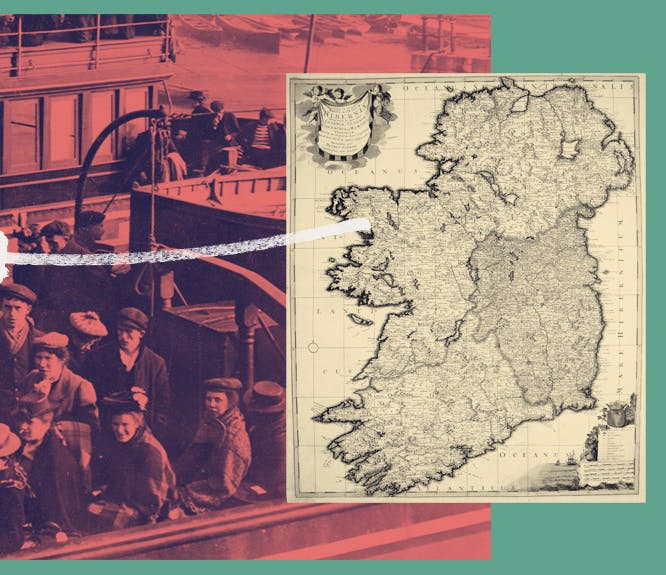
From Ulster to the US: Irish migration patterns and their impact on Irish genealogy
History Hub
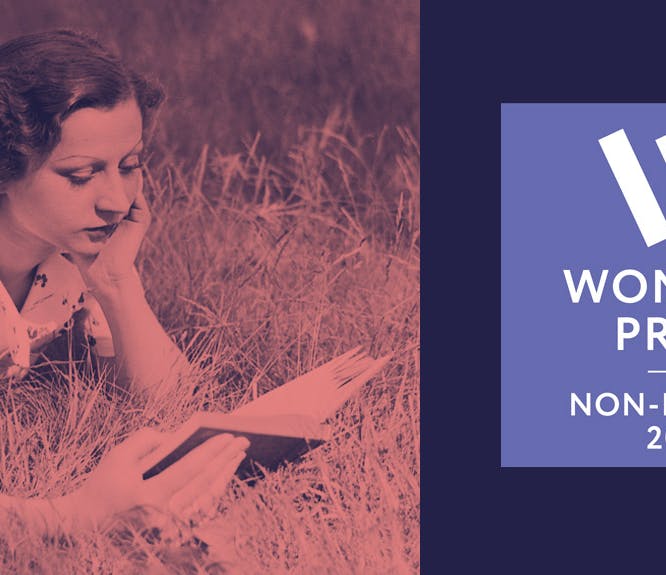
The Women's Prize Trust announces Findmypast as the inaugural sponsor of the Women's Prize for Non-Fiction
The Findmypast Community
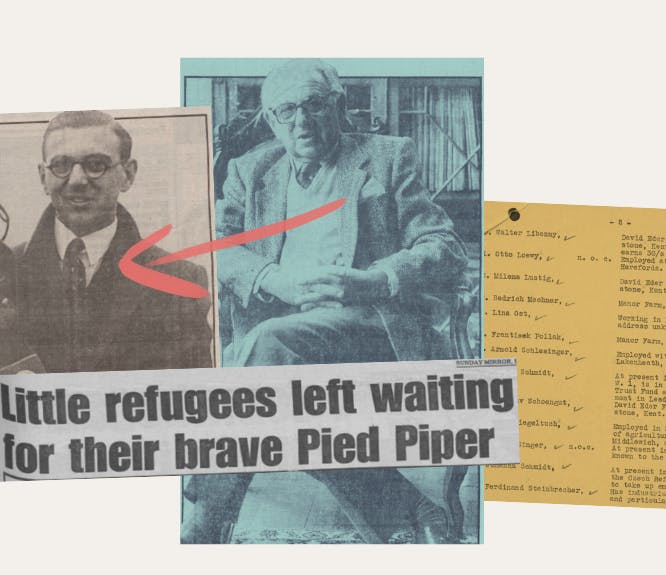
The remarkable true story of the man who saved 669 children from the Nazis
History Hub
